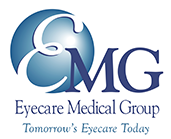
The eyes provide insight into your overall wellness and reveal health problems that might otherwise be overlooked. The American Academy of Ophthalmology celebrates Healthy Aging Month in September.
Keep reading to learn eight suggestions to follow during Healthy Aging Month!
1. Schedule an Annual Eye Exam
Routine eye exams are essential for maintaining the health of your eyes. During an annual eye exam, your eye doctor will check your eyes for age-related conditions such as:
- – glaucoma
- – cataract
- – age-related macular degeneration
- – diabetic retinopathy
Eye exams also enable your eye doctor to identify other health problems such as diabetes, stroke, rheumatoid arthritis, and even high cholesterol. Early identification of these conditions means that early intervention can halt further damage, thereby preserving your vision.
2. Accommodate Changes in Vision
Changes in your visual response will occur as you grow older. Knowing what to expect will save you from accidents and mishaps that happen when you’re not seeing as well but not yet realizing it.
As you age, it can become harder to distinguish an object from its background when both are the same color. You might knock a white coffee cup off of a white countertop in reaching for it.
Being aware of this loss of contrast sensitivity can help you to make choices that aid you in finding objects. For example, buy a bright yellow cellphone case if you’re constantly losing your black-colored phone in the black interior of your car between the seat and the console.
3. Take Your Time to Adjust to Varying Levels of Light
You may also notice your eyes taking longer to adjust to changes in lighting. If you’re going indoors from a bright outside environment, knowing that you’ll see poorly for the first few seconds will encourage you to take these transitions slower.
If your home has steps to an exterior door, make sure to grab onto something once you step in or out. Wait until your eyes adjust, and then continue.
As you age, you’ll want to avoid falls or anything that’ll require a long recuperation time.
4. Practice Caution with Nighttime Driving
You may also find that nighttime driving is becoming more of a challenge. You may be more sensitive to glare, the brightness of oncoming headlights, and halos as you drive.
Rain may worsen your vision problems. Take all this into account, and try to drive primarily during daylight hours.
When driving at night, reduce your speed. And make sure that at every intersection, you’re aware of traffic patterns and other approaching vehicles.
5. Reduce Your Screen Time
Aging eyes tend to become dryer. When you blink less, that adds to the dryness.
You may not realize that hours of screen time on a computer or device substantially slow your blinking rate, adding to dryness. If you must be on a screen for work, take frequent breaks to rest your eyes.
6. Follow the 20/20/20 Rule
Whether you’re on a computer for work or relaxation, implementing the 20/20/20 rule is an excellent overall habit. Set your timer to go off every 20 minutes, and when it sounds, look away from your screen at something 20 feet away and do this for 20 seconds.
7. Drink Plenty of Water
You’ve heard this from various sources, but drinking water is an easy way to maintain health and help hydrate and keep your eyes moist.
8. Seek Medical Attention for Sudden Vision Changes
As you age, gradual vision changes are to be expected. If you suddenly experience vision loss, such as dimming of overall sight or dark curtains at the edge of your vision, seek immediate medical care.
Don’t delay responding to threats to your sight.
Do you want to learn more ways to keep your eyes healthy during Healthy Aging Month? Schedule an appointment at Eyecare Medical Group in Portland, ME, today!





